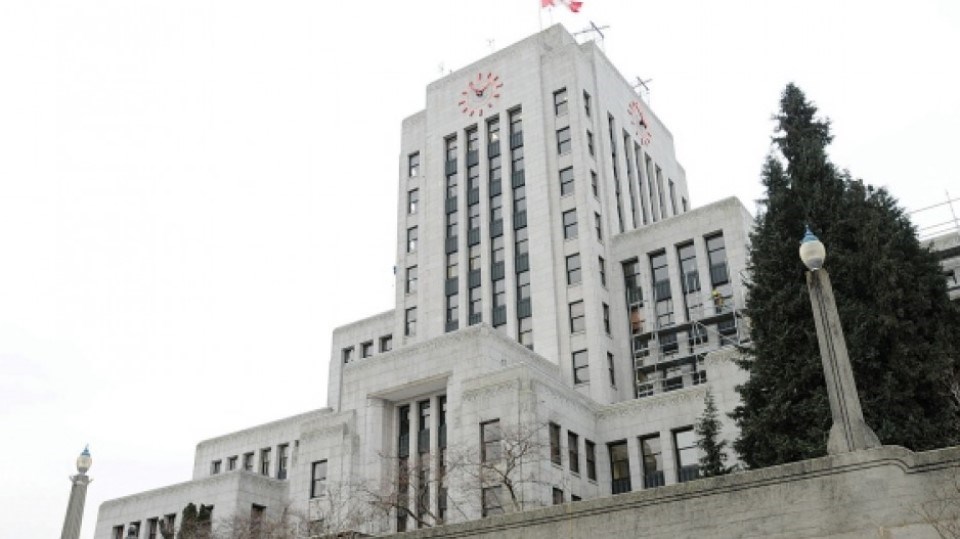Vancouver city councillors are taking steps to increase housing around under-enrolled schools and for middle-income earners but voted against a motion to add density to the Shaughnessy neighbourhood.
These actions are a result of a housing-focused agenda that featured three motions from councillors Christine Boyle, Lenny Zhou and Mayor Ken Sim Wednesday, Nov. 15. Zhou and Sim's motions passed unanimously with Boyle’s being shot down due to concerns of divisiveness, the potential to take up too much staff time and overlap with provincial housing legislation.
No new density for Shaughnessy
Boyle’s motion focused on adding housing, shops and services in Shaughnessy with a specific focus on rental housing and family-sized housing options.
The Shaughnessy neighbourhood is known for its higher-than-average proportion of heritage homes and has the highest median household income of Vancouver neighbourhoods, said Boyle’s motion.
Six speakers provided their feedback with five in support and one opposed.
“Today’s vote is another piece of evidence that ABC Vancouver just does not take housing affordability seriously,” said Boyle, referencing Sim’s party in a statement that was released following the vote.
“They talk a big game about adding to Vancouver’s housing supply. But when offered an opportunity to add desperately needed supply close to transit and jobs, while minimizing displacement of current renters, another message comes through: ‘Not next to multimillionaires. Not in their backyard.’”
Despite being shot down the motion was supported by the non-profit housing community, Vancouver Coastal Health, housing advocates and the development community alike, according to a press release from Boyle’s party OneCity.
Many questions were asked by councillors as to potential overlap with provincial housing legislation that will legalize the construction of multiple units on single-family lots.
City staff could not respond to questions on whether the new provincial housing legislation would override land use policies in Shaughnessy.
“There are a lot of moving parts and some uncertainty in that regard,” said Vancouver city manager Paul Mochrie.
The motion was labelled “questionable” and “would seek to drive a wedge among Vancouver communities along class lines,” according to a statement from ABC Vancouver, released after the vote.
“I’m grateful to my fellow councillors for rejecting this motion, which would have wasted precious staff time and resources at a time when we desperately need new, attainable housing,” said Coun. Rebecca Bligh. “Not only would the work be redundant, the land economics are a huge barrier to achieving any housing the majority of Vancouverites could reasonably afford.”
New housing near under-enrolled schools and for middle-income earners
The second housing motion presented to council hopes to kill two birds with one stone: build more housing and encouragement enrolment in Vancouver schools.
Councillor’s Zhou’s motion, which passed unanimously, aims to have staff look into opportunities to increase family-oriented density near schools with a particular emphasis on schools that are risk of closing due to a lack of students, according to the motion.
While the motion is not directly aimed that increasing school enrolment, Zhou said the hope is that new housing will encourage families to relocate to the areas near the schools.
“By allowing multiplex development, encouraging family-oriented housing density, we aim to reverse the [enrolment] trend and make Vancouver an attractive and sustainable home,” he said.
Staff will be required to provide an initial report back to council with recommendations by the end of the third quarter of 2024, according to the motion.
In addition to encouraging housing near schools, the existing mandate of the newly created Vancouver Housing Development Office has been expanded to include the creation and delivery of middle-income housing on city-owned land.
The city office currently works to deliver non-market housing and oversee the Vancouver Affordable Housing Endowment Fund.
“It’s worth noting that Mayor Sim's motion marks the first time in memory that the City of Vancouver has tackled the creation of middle-income housing,” said a City of Vancouver press release.
“By leveraging land the city owns in new ways with various partners, we are laying the foundation for the next generation of residents in our rapidly growing city.”
Coun. Pete Fry expressed concerns that by adding middle-income housing to the mandate of the Vancouver Housing Development Office, that the delivery of below-market would not get enough staff time.
“I’m going to borrow a quote from the ABC press release on the Shaughnessy motion, that this is a questionable use of city staff time and resources,” said Fry, adding that the Shaughnessy motion would have helped to add middle-income housing.
“In that context, this is work that we are already generally doing city-wide… so I’m not sure that adding another layer of bureaucracy and red tape to further that is necessarily the best use of staff time and resources.”
In the end, the vote passed unanimously to add middle-income housing to the mandate of the Vancouver Housing Development Office.



